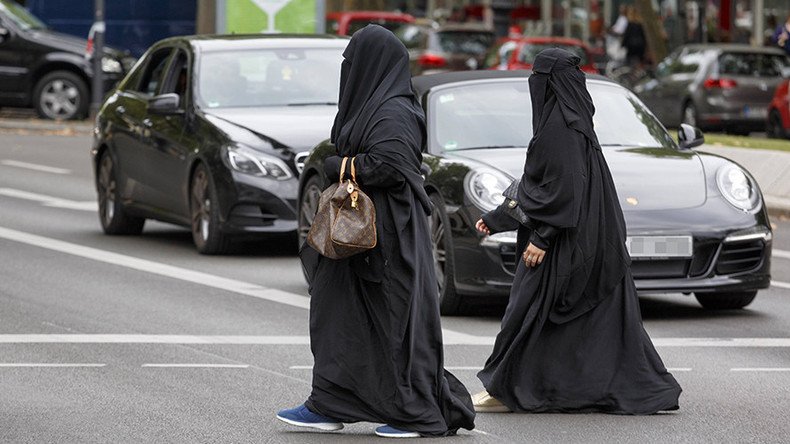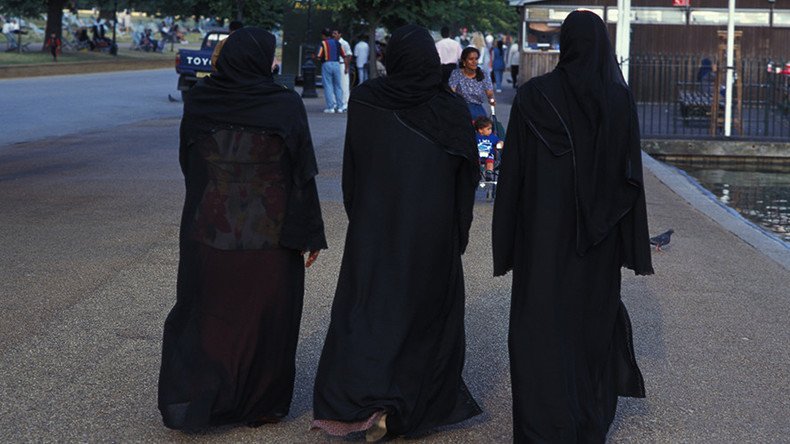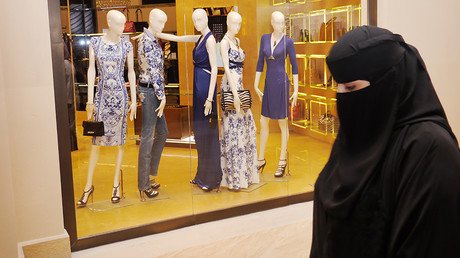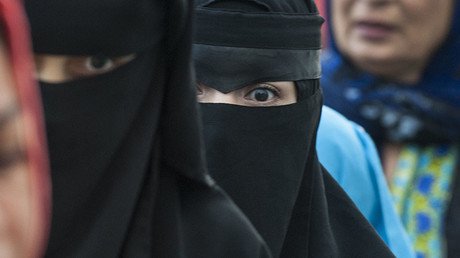Danish burqa ban: Which EU states is Denmark set to join with face veil restrictions?

The Danish ruling coalition parties have expressed their support for the full-face veil ban. As Denmark is set to ban the Muslim conservative garb, which EU countries will it join?
The liberal Venstre Party, the senior member of the ruling coalition, has announced its support for the ban on wearing full-face veils in public places following a party meeting dedicated to the issue Friday.
“The forthcoming ban on face covering will receive backing from Venstre,” the liberal party’s spokesman, Jakob Ellemann-Jensen, told the Danish broadcaster DR, adding that it will be “not a religiously defined ban but it will still obviously cover burqa and niqab.”

Earlier, some high-ranking members of the party, including its deputy leader, Kristian Jensen, and the Higher Education and Science Minister Soren Pind, opposed the measures but now Ellemann-Jensen said the party is “united” in its support for the move.
The stance of another coalition member, the libertarian Liberal Alliance (LA), has also drastically changed. The party that opposed the ban just last month, arguing that it might isolate Muslim women and prevent them from leaving their homes altogether, now also said it would back such an initiative.
“Everyone agrees that the burqa is an expression of extreme oppression of women,” the party leader, Anders Samuelsen, wrote Friday in a Facebook post. He went on to say that his party is “in favor” of the ban, if the Danish authorities could impose it “without harming ourselves and our values.”
By expressing their support for the ban, the Liberals and the LA join the Conservatives and the right-wing populist Danish People’s Party who already back it, thus securing a parliamentary majority and opening the way for Denmark to become the latest European country to introduce such a ban.
A recent poll commissioned by DR in late September showed that 62 percent of the Danish population are in favor of such a ban, while fewer than one in four oppose it.
In the meantime, half a dozen EU states have already introduced similar nationwide bans, while in some other countries restrictions on wearing face-covering veils exist at a regional level.
Which EU states have nationwide bans?
Austria has so far become the latest European country to ban wearing full-face veils in public places as the law called the ‘Anti-Face-Veiling Act’ came into force in the Alpine country on October 1. Those found in violation of the legislation could face a fine of €150 ($175).
The law defined by the authorities as “religiously neutral” and also banning people from wearing balaclavas, covering their faces with scarves or even wearing medical masks without sufficient reasons still provoked an angry reaction from the local Muslims.
READ MORE: Austrian burqa ban takes effect ahead of general election
The first country to introduce the ban, which is still often deemed to be controversial, was France that barred Muslim women from wearing full-face veils in public as early as in 2011. Belgium almost immediately followed suit and introduced a similar ban later the same year.
Both countries, however, eventually landed in court over the controversial move. In both cases, Muslim women challenged the bans in the European Court of Human Rights (ECHR). However, the judicial body upheld France’s burqa ban in 2014, ruling that the preservation of an idea of social cohesion was a “legitimate aim" of the French authorities.
In 2017, the court also ruled in favor of Belgian authorities in a similar case by saying that the ban “doesn’t violate European human rights law.” In the meantime, opponents of the ban also found more ingenious ways to express their discontent with it.
A French businessman of Algerian origin, Rachid Nekkaz, has long been calling on Muslim women to defy the face veil bans introduced in European countries. He also offered to pay their fines and even established a special fund to deal with the issue.
According to Nekkaz, he already pays fines for Muslim women wearing face veils in public places in defiance of the ban in France, Belgium and the Netherlands. In his latest move, he also vowed to do the same for women in Austria.
Dutch lawmakers approved a ban on wearing face veils and other face-covering garments in certain public places such as schools, hospitals or government buildings in November 2016. The ban, however, does not cover such situations as wearing burqas on the street, but applies only to specific situations, in which face recognition and proper communication are “essential.”
Bulgaria outlawed“wearing in public clothing that partially or completely covers the face” in public places just months before the Netherlands, in September 2016, citing security concerns. Those found in defiance of the ban in Bulgaria could face fines of up to 1,500 leva (about $860) and be stripped of social benefits.
According to some reports, Latvia also failed to overcome temptation to ban the controversial peace of closing even though only three women reportedly wear the garment in the entire Baltic state. This fact, however, did not stop the Latvian lawmakers from claiming that burqa poses a “serious” security risk for Latvia and undermines its culture.














